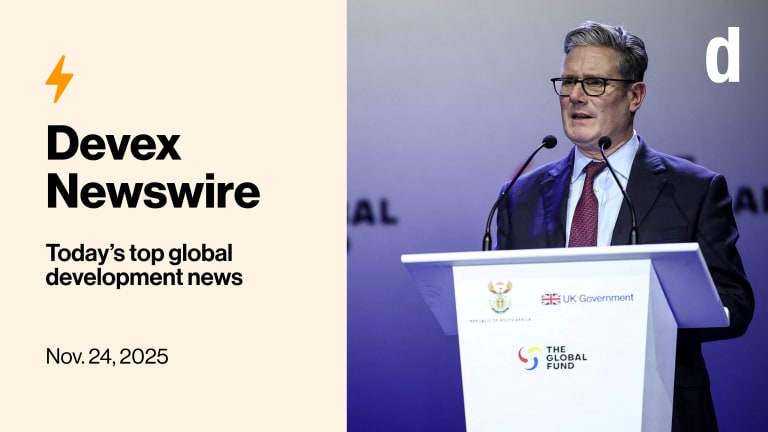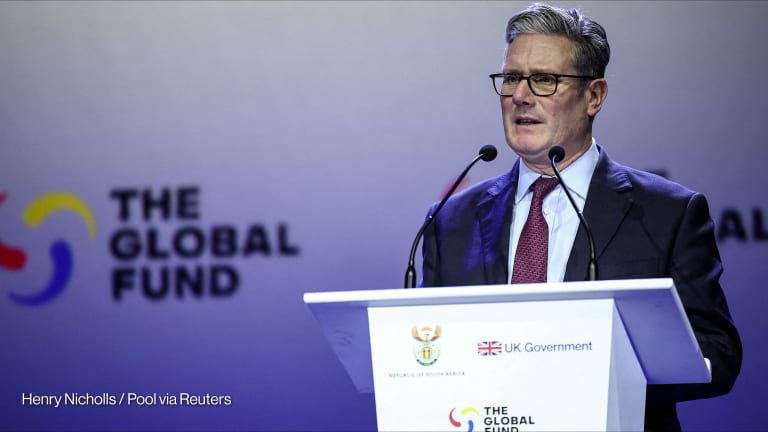
EDITOR’S NOTE: It “could spell disaster” if the current budgetary environment in the United States results to reduced U.S. support to the Global Fund to Fight AIDS, Tuberculosis and Malaria, according to Amanda Glassman and Jenny Ottenhoff of the Center for Global Development. Because the United States is the largest Global Fund contributor, it is in a unique position to influence pledges by other donors, they add.
Amid an increasingly complex fiscal environment in Washington (i.e. the newly-triggered sequester and the soon-to-expire FY13 continuing resolution), I can’t help but think about the tough trade-offs the Office of Management and Budget (OMB) must be considering as they finalize the President’s FY14 budget request to Congress, expected to be released in mid-March. From an economics perspective, I appreciate careful consideration of these trade-offs. But from a health economics perspective, I have concerns about what cuts will mean for critical US investments in the global fight against AIDS, TB and Malaria. For reasons that have mostly to do with timing, coming in low on the Global Fund for AIDS, TB and Malaria request for FY14 could spell disaster.
After a year-long period of upheaval, the Global Fund — and its new executive director, Mark Dybul — is well positioned to consolidate gains from a myriad of recent reforms, including a strengthened fiduciary and financial system, and a new funding model designed to improve the process for grant proposal and allocation. Together, these changes have won back the confidence of many of the Fund’s donors and stakeholders.
And just in time, as these stakeholders will be asked to make new commitments to replenish the Global Fund later this year. These pledges determine the amount of funding that will be available to Global Fund grant recipients for the next three years — and will also dictate the Global Fund’s ability to realize the potential gains from their reforms.
As the largest financial contributor to the Global Fund, the US pledge sets the bar for other donors and is also uniquely positioned to leverage funds — that is, each $1 that the US invests is matched by more than $2 from other donors. Thus, the US FY14 budget request will be one of the first signals from a major donor of their support for the Global Fund and will effectively provide a ceiling for the ambition of other donors. Further the FY14 request will shape the USG’s future commitments to the Global Fund as well.
For all these reasons, a strong FY14 request is critical to help maintain the momentum of ongoing reforms at the Global Fund and leverage more from other donors.
But I also hope this moment can spur an honest conversation about trade-offs in global health financing. Indeed, an assessment of the comparative advantages and limitations of global donors working on HIV and AIDS could help ensure the US gets the most health for every dollar invested.
For instance, moving forward, it makes sense to gradually give the Global Fund a greater proportion of US resources for HIV treatment, subject to additional Global Fund reforms related to strengthened performance definition and independent verification. This arrangement could leverage the Global Fund’s ability to give multiyear commitments to countries (an inherent limitation of US bilateral funding), and help ensure recipient countries are better protected from the ups and downs of volatile foreign assistance disbursements. This will also allow the US to sustain financing — and get more bang for the buck — for the thousands of patients it already has a moral commitment to support on life-long AIDS treatment. Likewise, this arrangement could allow PEPFAR to maximize its on-the-ground presence in recipient countries — something the Global Fund doesn’t have — to better provide international technical expertise on clinical best practice.
Discussing these trade-offs in light of a tough budget environment is not easy, particularly because lives hang in the balance. But it’s also necessary for the same reason. I hope the President’s FY14 budget will strongly support the Global Fund at this critical moment, and open up a conversation on how and where US investments in AIDS can make the most impact moving forward.
Republished with permission from the Center for Global Development. View original article.








